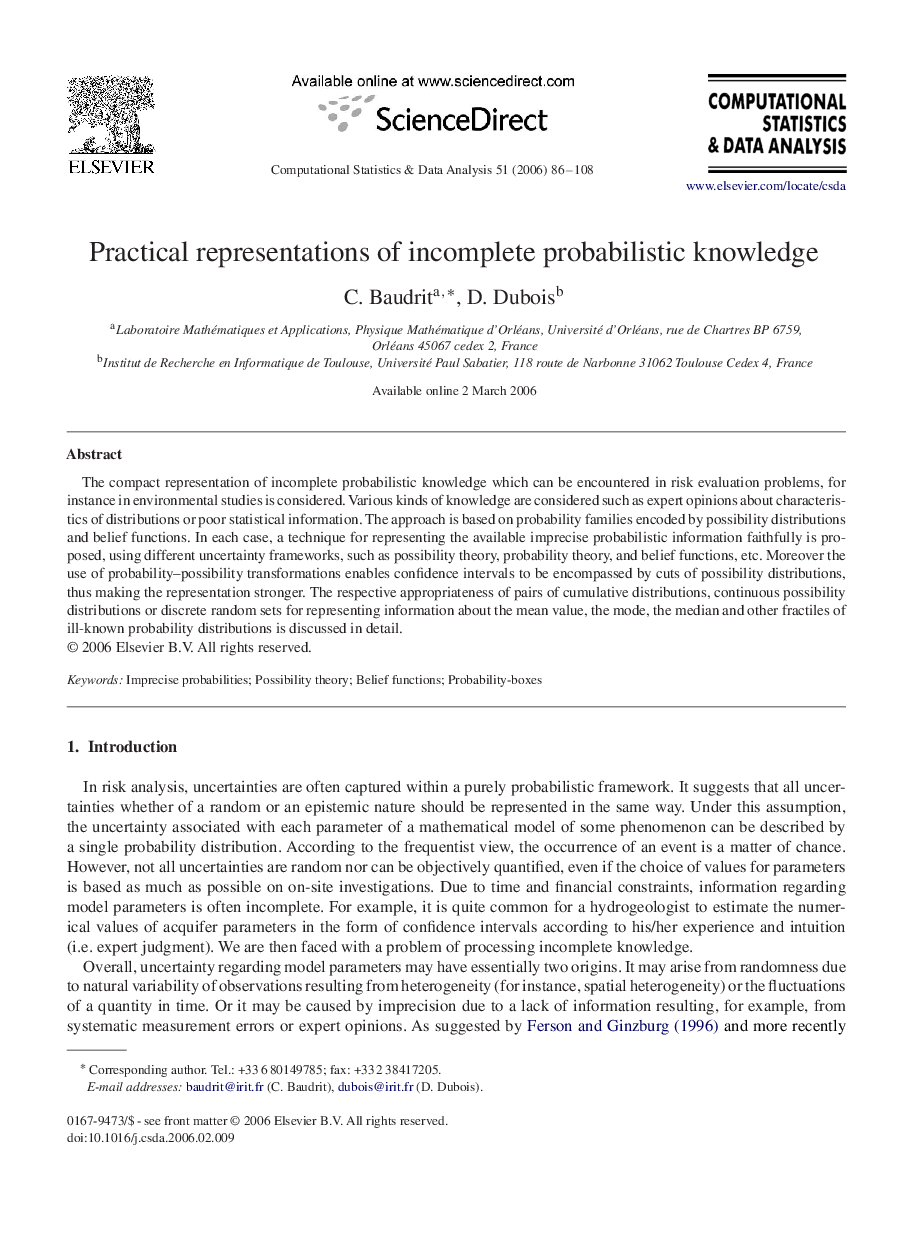| Article ID | Journal | Published Year | Pages | File Type |
|---|---|---|---|---|
| 416799 | Computational Statistics & Data Analysis | 2006 | 23 Pages |
The compact representation of incomplete probabilistic knowledge which can be encountered in risk evaluation problems, for instance in environmental studies is considered. Various kinds of knowledge are considered such as expert opinions about characteristics of distributions or poor statistical information. The approach is based on probability families encoded by possibility distributions and belief functions. In each case, a technique for representing the available imprecise probabilistic information faithfully is proposed, using different uncertainty frameworks, such as possibility theory, probability theory, and belief functions, etc. Moreover the use of probability–possibility transformations enables confidence intervals to be encompassed by cuts of possibility distributions, thus making the representation stronger. The respective appropriateness of pairs of cumulative distributions, continuous possibility distributions or discrete random sets for representing information about the mean value, the mode, the median and other fractiles of ill-known probability distributions is discussed in detail.
